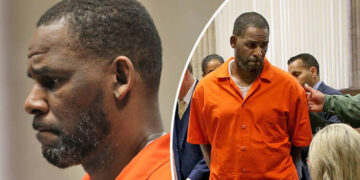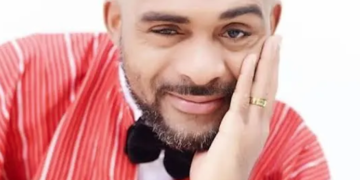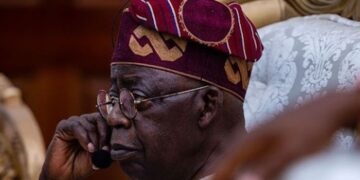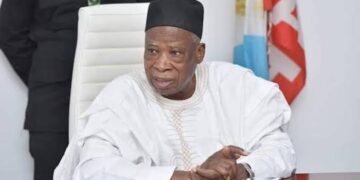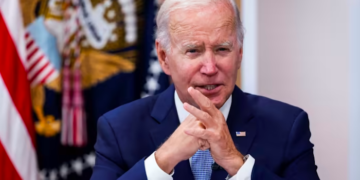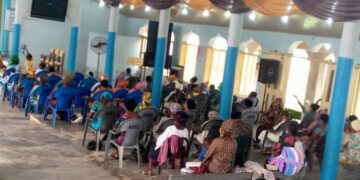It was reported Thursday that at least 21 people had been killed and over two dozen injured after a bomb went off in a mosque in the Afghan capital.
Although there has been a decrease in the number of bombings in Afghanistan since the Taliban regained power last year, several strikes, some of which have been directed towards minority communities, have shaken the country in recent months.
The explosion that occurred on Wednesday night at the Sediqia Mosque in Kabul, which also has an adjacent madrasa, has not been claimed by any party.
A local man identified as Masiullah stated, “He was my cousin, may God forgive him.” He was referring to a relative who was killed in the incident.
His wedding had been almost a year ago; he was 27 years old and a good man.
Police spokesman in Kabul, Khalid Zadran, confirmed 21 deaths and 33 injuries in the Kabul Mosque Blast.
The Italian NGO Emergency, which runs a hospital in Kabul, reported on its website that it had treated 35 patients from the Kabul Mosque Blast, three of whom later passed away.
“The majority of casualties were brought about by burns and shrapnel. All night long, our surgical team was hard at work. Among the bodies we received, nine were youngsters “Director of Operations for the country Stefano Sozza confirmed as much in a press release on Thursday.
In a statement released on Thursday, the United Nations Assistance Mission in Afghanistan expressed concern over the “deteriorating” security situation in the nation.
We deplore yesterday’s attack in a Kabul mosque, the latest in a troubling sequence of explosions that have killed and injured more than 250 people in recent weeks, the biggest monthly number of civilian casualties over the last year, as stated in a statement issued on Twitter.
Taliban authorities routinely deny or downplay incidents reported on Afghanistan’s thriving social media, despite their insistence that they have complete control of security.
On Thursday, armed Taliban fighters prevented journalists from visiting the newest blast site, continuing a recent trend of barring local and foreign media from covering the aftermath of strikes.
Nearly a week ago, on February 6, a suicide bomber attacked Rahimullah Haqqani, a prominent member of the Taliban, and his brother at their madrasa in Kabul, killing both men. Wednesday’s blast follows in their footsteps.
Haqqani’s rants against IS, the group that claimed responsibility for the attack, were well-known.
The Shiite, Sufi, and Sikh minorities have been the primary targets of the jihadist group.
Although the Taliban insist they have eliminated the Islamic State, experts say the terrorist organization still poses a significant threat to the safety of the radical Islamists.
Islamic State (IS) is a Sunni Islamist group, just like the Taliban, yet they are ardent enemies due to their doctrinal differences.
On Thursday, Taliban officials led an important assembly of over 2,000 clerics and elders in Kandahar, the movement’s de facto power stronghold in the south.
A Taliban spokesman claimed in a statement emailed to the media that “important decisions” will be made at the meeting, but gave no further information.
On Monday, the Taliban marked one year since retaking power after a year that saw the suppression of women’s rights and the worsening of the humanitarian catastrophe.
Many limitations have been gradually enforced, despite initial promises of a more moderate form of the hardline Islamist control that characterized their first period in office from 1996 to 2001.
In an effort to prevent money from reaching the hands of the Taliban, the United States has frozen Afghanistan’s abroad assets and reduced funding.
The government has not been recognized by any countries.




